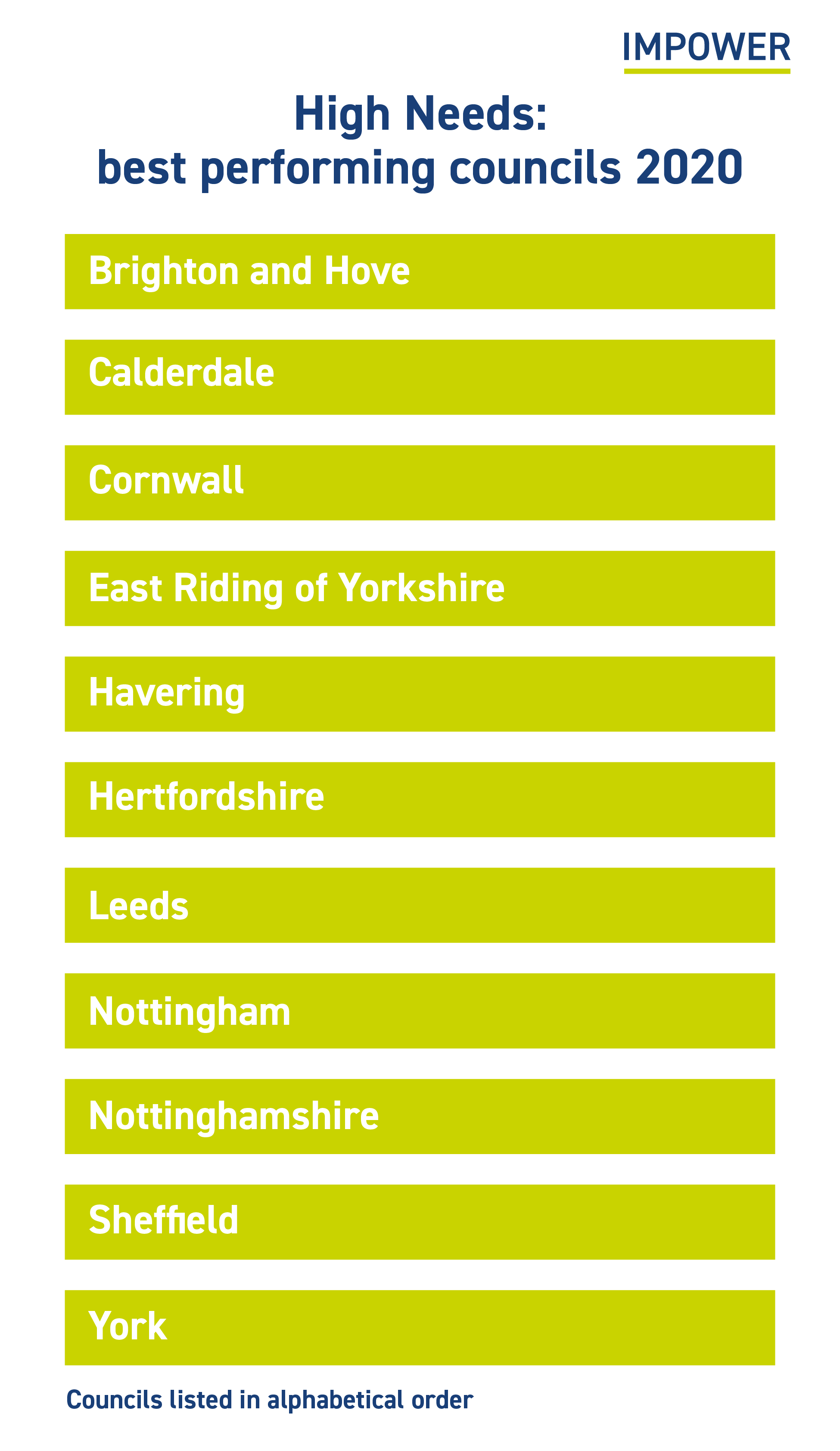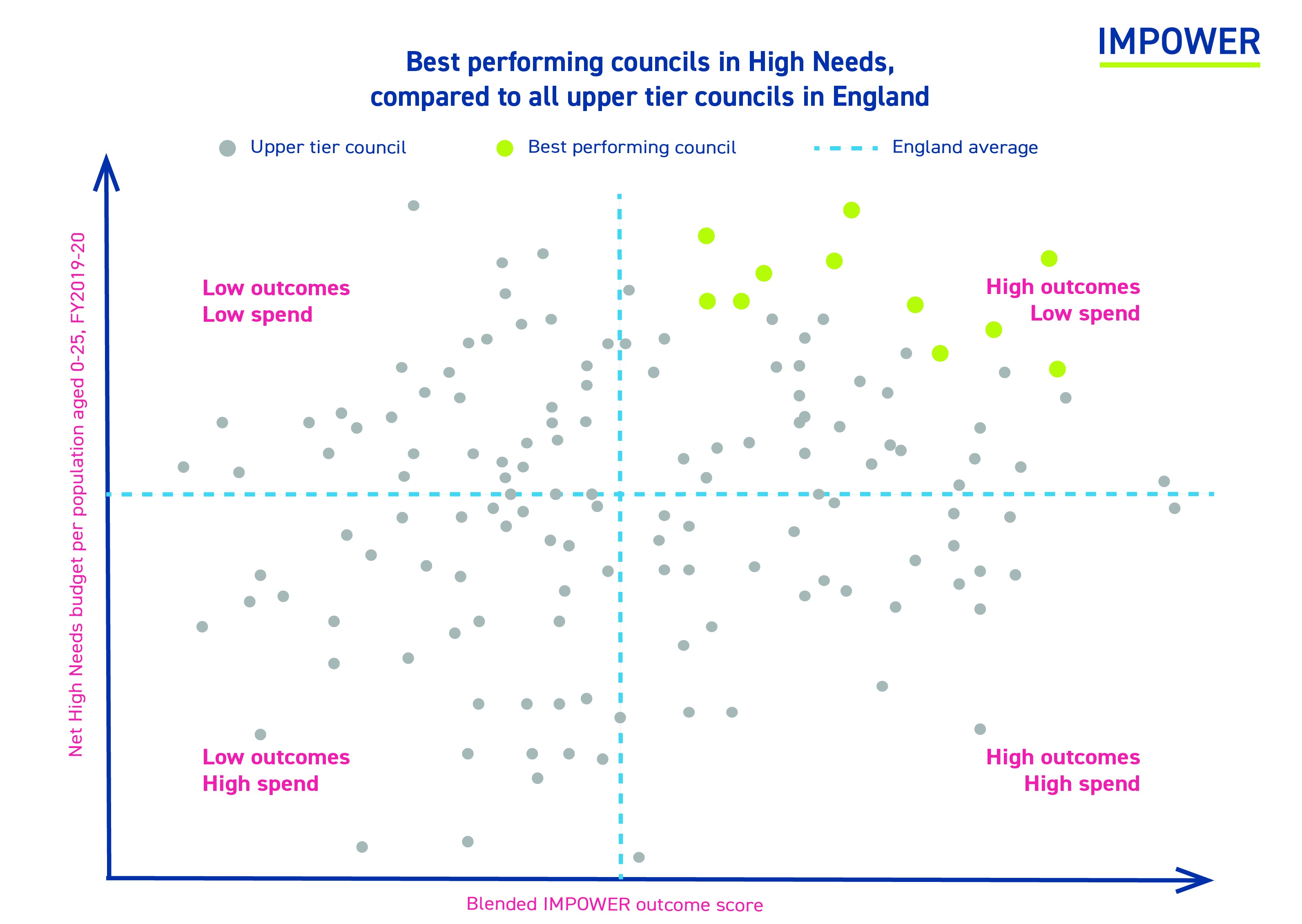While we still don't know what the national review into special educational needs and disabilities (SEND) is going to say, what we do know is that over the next week more than 1.3 million children and young people with some kind of special educational needs will be returning to school. Some have not been in education for nearly half a year.
We also know that pupils with SEND account for just under half of all exclusions – meaning that without the right types of integrated support across the wider ‘high needs system' in a local area, reintegration of those pupils could be challenging for pupils, parents and professionals alike.
Demand and spending on high needs continues to rise, with numerous authorities wrestling with deficit recovery plans due to the significant challenge of balancing the books.
While a continued criticism in a number of local area SEND inspections has been the inability to demonstrate outcomes for children with SEND, there is no national framework for how to do this or recognition that, as a complex highly connected system, the lack of a shared ambition across the high needs system is impacting on the effectiveness of how different organisations work together to achieve a shared goal.
This lack of a shared framework for what ‘good looks like' and how to achieve it continues to jeopardise financial sustainability and the achievement of good outcomes for children and young people with additional needs.
In response, last year we expanded the iMPOWER Index to measure value within high needs funding, ranking councils according to their performance. After convening two national roundtable discussions of system leaders in high needs, we then published a list of 10 ambitions participants felt local areas should seek to agree to build shared ownership across high needs.
Drawing from these discussions we have also further refined our methodology. Instead of producing a ranked list of the top 10 councils, we are publishing a list of the best performers in alphabetical order, as the purpose of the Index is to spark debate and learning rather than simply encourage a narrow focus on the rankings.


This year's insights
Analysing this year's list of best performers reveals some interesting insights, including:
- The majority providing earlier special educational needs (SEN) support rather than through education, health and care plans.
- The majority of children with SEND being supported in mainstream settings.
- Lower rates of fixed term exclusions for children without SEND (although their exclusion rates for children with SEND are still high).
Nottinghamshire stands out for its high aspirations for children in alternative provision, with a higher proportion going into employment, apprenticeships or higher education.
York deserves special mention for enabling young people with additional needs to access their education provision close to home, and extremely low levels of permanent exclusions for young people receiving SEN support.
While all councils on the list should be congratulated, all have areas where they could improve outcomes for children with high needs. This is most obvious in relation to education and employment outcomes, and the continued high percentage of fixed term exclusions faced by children with SEND – reinforcing the need to lock in broader ambition across local high heeds systems with partners. It is hard to argue we shouldn't strive for better in these areas.
A special mention should go to the Yorkshire and Humber region, with five of the best performing councils coming from this area.
It would be great to hear whether collaborative approaches and learning are taking place that could be shared with other areas.
Of course, developing a list of top performers is not straightforward or an exact science. It highlights what we are not measuring as a sector – including clarity on actual spend over budget, or a way of measuring the effectiveness and integration of support through the voice of children and parents themselves.
It is clear there is still more to do to enable a robust assessment of whether we are getting the best possible value and outcomes for the £7bn-plus spent on high needs; over the coming months we will be encouraging further discussion on what else should be measured next in order to continue the debate.
Leo Jones is director, IMPOWER

